
Audi RS Q e-tron Saves More Than 60 Percent Carbon Dioxide at the 2023 Dakar Rally
source: Audi AG
- Audi relies on reFuels for the first time at the toughest desert rally
- Advanced sustainable fuel is residue-based and does not compete with food products
Already at its Dakar debut, the Audi RS Q e-tron set standards in efficiency and competitiveness of e-mobility in motorsport in January 2022. Now the next step follows: The three desert prototypes with electric drive and energy converter will be at the start of the next edition of the Dakar Rally from December 31, 2022 to January 15, 2023 for the first time with an innovative fuel.
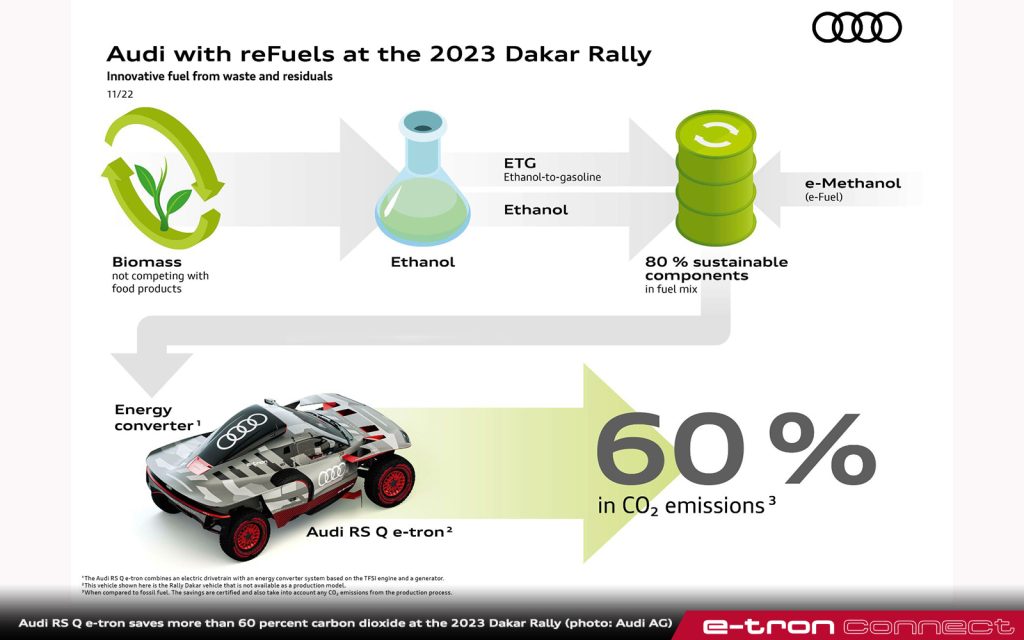
“At Audi, we are pursuing a consistent strategy of decarbonization,” says Oliver Hoffmann, Board Member for Technical Development at Audi. “Our battery vehicles and renewable electricity are the lead technologies. To complement this, renewable fuels offer the possibility of running internal combustion engines in a more climate-friendly way. The Audi RS Q e-tron combines both systems in its innovative drive. As a result, we are now even more sustainable on the road in the toughest motorsport imaginable for electric drives.” To further reduce carbon dioxide emissions, Audi relies on residue-based products that do not compete with foodstuffs for the fuel used in the rally car. Behind this is a process that converts biomass into ethanol in a first step. The final fuel is then produced in further process steps. The process is abbreviated to ethanol-to-gasoline (ETG). The process engineers use biogenic plant parts as the starting product.
The tank content of the RS Q e-tron consists of 80 percent sustainable components, including ETG and e-methanol. This fuel is required by the energy converter, whose combustion engine part operates with high compression and thus very efficiently to supply electricity for the electric drive. So while the drive concept in principle already requires less fuel than conventional systems, there is now a further optimization. “With this fuel mixture, the Audi RS Q e-tron saves more than 60 percent in carbon dioxide emissions,” says Dr. Fabian Titus, Application and Thermodynamics Development.
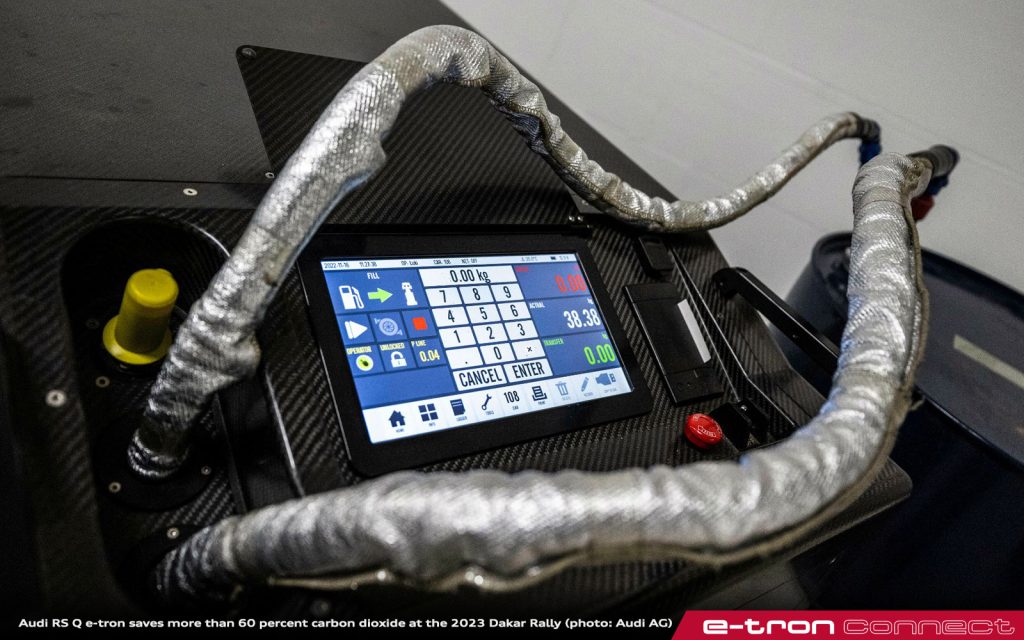
This development, driven by Audi, complies with the strict chemical specifications of the FIA and ASO fuel regulations. They are similar to the regulations for commercially available fuel grades with 102 octane. Such a high value guarantees the anti-knock properties of the fuel-air mix during the combustion process. With this innovative fuel, the combustion engine even achieves slightly higher efficiency than with fossil-based gasoline. However, the oxygen content in the reFuel reduces the energy density of the fuel, which is why the volumetric calorific value drops. The RS Q e-tron therefore requires a larger tank volume. Of course, this does not give the vehicle a regulatory advantage, because fuel flow meters determine energy consumption with maximum precision in the interest of equal opportunities among the participants.
In its premiere year 2022, the first generation of the RS Q e-tron already completed the daily rally stages in January and March in a highly energy-efficient manner thanks to the electric drive with energy converter. A significantly improved CO2 balance is additionally achieved through the direct use of renewable fuels in HEV (Hybrid Electric Vehicles) models such as the RS Q e-tron and in highly efficient hybrid vehicles for road traffic in general.
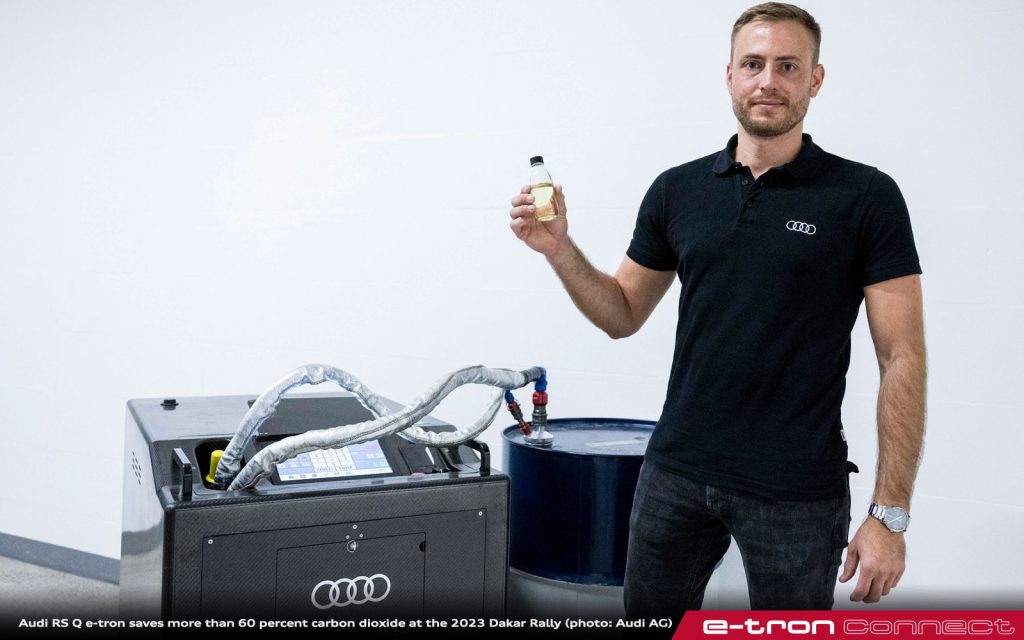
Audi’s vision is to drive the world’s most demanding races with 100 percent renewable fuel. After the four rings have stood for a technology transfer between motorsport and production cars for more than four decades, the use of reFuels opens up an additional dimension: vehicles with combustion engines and hybrid drives can continue to make an effective contribution to reducing greenhouse gases with reFuels.


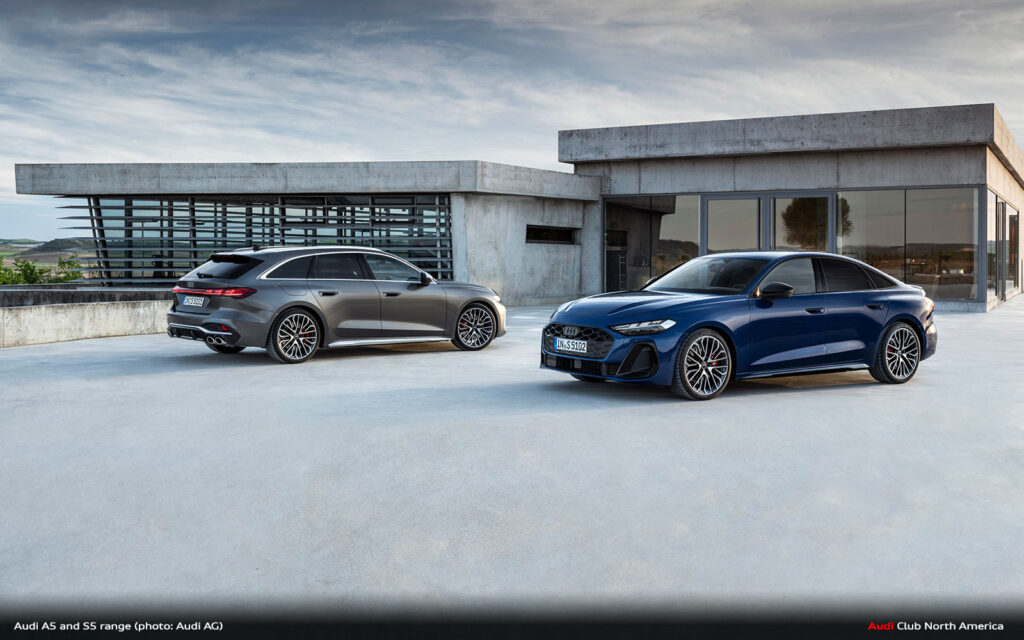


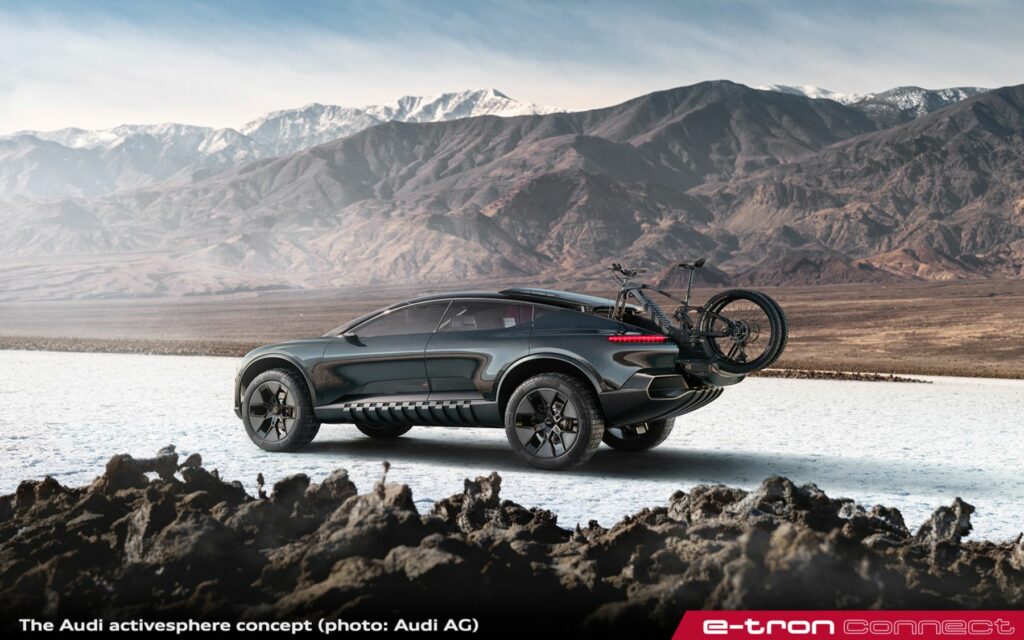

Responses